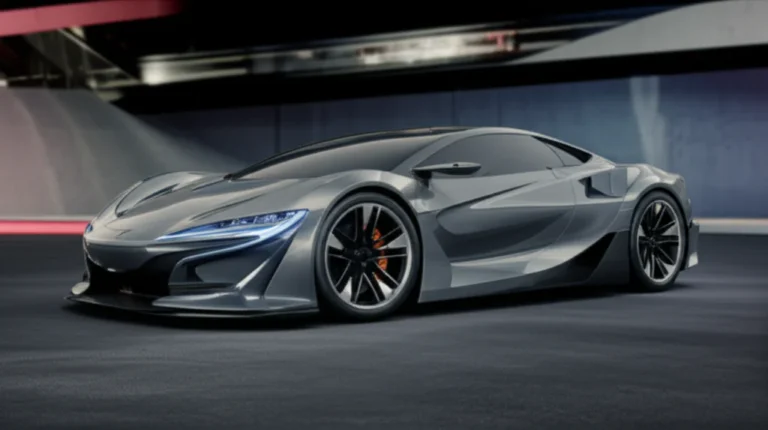Support our educational content for free when you purchase through links on our site. Learn more
Car Brand Statistics Uncovered: Top 15 Trends & Insights (2025) 🚗
Buckle up! If you thought car brand statistics were just dry numbers, think again. Behind every sales figure and market share percentage lies a story of innovation, fierce competition, and shifting consumer tastes that shape the global auto industry. Did you know Toyota sold over 8.5 million vehicles in 2023 alone, while Chinese EV giant BYD surged with nearly 50% growth? And that’s just the tip of the iceberg.
In this comprehensive guide, we dive deep into the latest global sales rankings, reliability ratings, consumer satisfaction scores, and emerging trends like electrification and brand loyalty shifts. Whether you’re a data geek, a car buyer, or just curious about which brands are winning hearts and wallets worldwide, we’ve got the insights you need. Plus, we reveal surprising winners and losers, including luxury brands defying expectations and budget brands facing tough challenges. Ready to discover which car brands truly dominate 2025? Let’s hit the road!
Key Takeaways
- Toyota remains the global sales leader, with over 8.5 million vehicles sold in 2023, showcasing unmatched market dominance.
- Asian brands dominate reliability and customer satisfaction, with Lexus, Toyota, and Honda topping the charts.
- Electric vehicle market share is exploding, led by Tesla and BYD, reshaping the future of mobility.
- Consumer loyalty is fragile, with nearly half of buyers willing to switch brands, emphasizing the need for continuous innovation and quality.
- Luxury brands like BMW and Mercedes-Benz maintain prestige but come with higher maintenance costs, a crucial factor for buyers to consider.
- Emerging Chinese brands are rapidly gaining ground globally, signaling a major shift in the automotive landscape.
Dive into the full article for detailed stats, expert analysis, and actionable insights to help you navigate the fast-changing world of car brands in 2025!
Table of Contents
- ⚡️ Quick Tips and Facts on Car Brand Statistics
- 🚗 The Evolution of Car Brand Statistics: A Historical Perspective
- 📊 Top 15 Car Brands by Global Sales Volume in 2024
- 🌍 Market Share Breakdown: Domestic vs. Asian vs. European Car Brands
- ⭐ Consumer Satisfaction Ratings: Which Car Brands Win Hearts?
- 🔍 Key Insights from Recent Car Brand Performance Reports
- 🏆 Editor’s Picks: The Most Reliable and Popular Car Brands of the Year
- 📈 Emerging Trends in Car Brand Popularity and Consumer Preferences
- 🛠️ Car Brand Reliability and Maintenance Statistics: What You Need to Know
- 💡 Environmental Impact Stats: Which Car Brands Lead in Sustainability?
- 🚙 Electric Vehicle Market Share by Car Brand: The Future is Now
- 📉 Declining Brands: Which Car Manufacturers Are Losing Ground?
- 🛒 Consumer Buying Behavior and Brand Loyalty Insights
- 📚 Comprehensive Report on Car Brand Statistics: Data Sources and Methodology
- 📞 Get in Touch: Expert Advice on Car Brand Choices and Statistics
- 🔒 Your Privacy Matters: How We Handle Your Data
- 📝 Conclusion: What Car Brand Statistics Tell Us About the Auto Industry
- 🔗 Recommended Links for Further Car Brand Research
- ❓ Frequently Asked Questions About Car Brand Statistics
- 📑 Reference Links and Data Sources
Here is the main content for your article.
⚡️ Quick Tips and Facts on Car Brand Statistics
Welcome, gearheads and data-lovers! Before we dive deep into the nitty-gritty of spreadsheets and sales charts, let’s pop the hood and check out some fast facts. Think of this as the appetizer before the main course—quick, tasty, and just enough to get your engine revving. For a complete overview, check out our main guide to Car Brand Statistics Worldwide: Insights & Trends (2025) 🚗.
- Global King 👑: Toyota has consistently dominated the global sales charts, selling over 8.57 million vehicles in 2023 alone. That’s a whole lot of Corollas and RAV4s hitting the streets!
- American Muscle 💪: In the good ol’ US of A, domestic brands are still titans. Ford was the best-selling make in 2023, while its parent company, Ford Motor Company, ranked third in overall light vehicle sales. However, it was General Motors that took the top spot among automakers, thanks to the powerhouse performance of Chevrolet and GMC.
- The EV Revolution is REAL ⚡: The electric vehicle scene is exploding! Chinese automaker BYD saw a staggering 47.46% sales increase in 2023, while Tesla wasn’t far behind with a 31.91% jump. In the UK, Battery Electric Vehicles (BEVs) now command over 22% of the year-to-date market share.
- Satisfaction is Key 🔑: What makes a brand successful? Happy customers! In 2023, Toyota, its luxury sibling Lexus, and Tesla topped the consumer satisfaction rankings in the U.S.
- Reliability Royalty 🏯: When it comes to reliability, Asian automakers are the undisputed champions, holding seven of the top ten spots in recent rankings. Lexus and Toyota consistently battle for the top position.
- Price & Quality Drive Decisions 💰: At the end of the day, what do most buyers care about? Price and product quality. These two factors remain the most significant influencers for American consumers choosing a new car.
🚗 The Evolution of Car Brand Statistics: A Historical Perspective
Ever wonder how we went from “My Ford Model T is better than your horse!” to obsessing over tenths of a percentage point in global market share? The world of car brand statistics has a fascinating history, evolving right alongside the automobile itself.
In the early days, “statistics” were little more than production numbers bragged about in newspaper ads. It was a simple time, a wild west of manufacturing where the goal was just to build more cars than the other guy. As the industry matured post-WWII, so did the data. We started seeing more detailed sales reports, the birth of market analysis, and the first real attempts to quantify what made consumers tick.
Fast forward to today, and we’re living in a data paradise (or nightmare, depending on your love for spreadsheets). We can track everything:
- Real-time sales figures from around the globe.
- Consumer satisfaction scores based on millions of data points.
- Reliability ratings calculated from extensive owner surveys and repair logs.
- Online search trends that predict which models will be hot next season.
This evolution from simple production counts to complex, multi-faceted analysis allows us at Car Brands™ to give you the most comprehensive insights possible. It’s not just about which brand sells the most; it’s about understanding why. For more on how these iconic brands got their start, check out our Car Brand Histories.
📊 Top 15 Car Brands by Global Sales Volume in 2024
Alright, let’s get to the main event: the global sales leaderboard. While we’re still cruising through 2024, the full-year data from 2023 gives us a crystal-clear picture of who’s ruling the automotive world. The numbers are staggering, and the competition is fierce.
As of Q1 2024, Toyota continued its reign, selling over 2.02 million vehicles, with Volkswagen trailing at 1.15 million. But the full story is in the 2023 numbers. Who took home the gold?
Here’s the breakdown of the top players based on units sold in 2023:
| Rank | Brand | Units Sold (2023) | Global Market Share |
|---|---|---|---|
| 1 | Toyota | 8,569,973 | 11.07% |
| 2 | Volkswagen | 4,965,621 | 6.41% |
| 3 | Honda | 3,774,161 | 4.87% |
| 4 | Ford | 3,729,817 | 4.82% |
| 5 | Hyundai | 3,540,787 | 4.57% |
| 6 | Nissan | 2,975,048 | 3.84% |
| 7 | Suzuki | 2,916,149 | 3.77% |
| 8 | Kia | 2,731,370 | 3.53% |
| 9 | Chevrolet | 2,692,391 | 3.48% |
| 10 | BYD | 2,683,743 | 3.47% |
| 11 | BMW | 2,101,487 | 2.71% |
| 12 | Mercedes-Benz | 2,063,820 | 2.67% |
| 13 | Audi | 1,772,892 | 2.29% |
| 14 | Tesla | 1,770,354 | 2.29% |
Source: Data compiled from Roadgenius.com.
What a race! Toyota’s lead is nothing short of monumental, but the real drama is happening further down the list. Notice how close the race is between brands like Chevrolet, Kia, and the rapidly ascending BYD. This isn’t just a list; it’s a story of strategy, innovation, and global economic shifts.
🌍 Market Share Breakdown: Domestic vs. Asian vs. European Car Brands
The global auto market is a battlefield with three major armies: the Domestic titans (from a U.S. perspective), the Asian powerhouses, and the European legends. Each has its own strategy, its own loyal followers, and its own territory to defend.
The American Stronghold 🇺🇸
In the U.S., domestic brands like Ford, Chevrolet, and GMC still hold significant ground, especially in the highly profitable truck and large SUV segments. As Statista notes, “domestic and Asian makes have earned popularity among buyers” in the sizeable U.S. market. Despite challenges like the 2023 UAW strike, the “Big Three” remain formidable competitors on their home turf.
The Asian Conquest 🇯🇵🇰🇷
Globally, however, Asian brands are the dominant force. Toyota is the undisputed sales champion, but it’s not alone. Honda, Hyundai, Nissan, and Kia all feature in the top 10, showcasing a mastery of mass-market appeal, efficiency, and, as we’ll see later, legendary reliability. Their strategy of offering high-quality, value-packed vehicles has resonated with consumers worldwide.
The European Premium 🇪🇺
So, where do the European brands fit in? While they “did not achieve the same sales success as domestic and Asian brands” in the mass market, they absolutely dominate the luxury space. Brands like BMW, Mercedes-Benz, and Audi command premium prices and immense prestige. Their focus isn’t necessarily on topping the volume charts but on leading in technology, performance, and brand value. It’s a classic case of quality over quantity.
For a deeper dive into how these giants stack up against each other, head over to our Car Brand Market Shares category.
⭐ Consumer Satisfaction Ratings: Which Car Brands Win Hearts?
Selling a car is one thing; making the owner happy for years to come is another. Consumer satisfaction is the secret sauce to long-term success, building brand loyalty that’s worth more than any advertising campaign. In the hyper-competitive U.S. market, it’s a crucial battleground.
So, who’s making their customers smile the most?
According to 2023 data, the top of the satisfaction podium was crowded with some familiar faces:
- ✅ Toyota: No surprise here. A long-standing reputation for quality and safety keeps owners coming back.
- ✅ Lexus: Take everything great about Toyota and wrap it in a layer of luxury and impeccable customer service. It’s a winning formula.
- ✅ Tesla: Despite some controversies, Tesla owners are famously passionate. The cutting-edge tech, supercharger network, and performance create an experience that many find deeply satisfying.
Why does this matter? Because happy owners become brand ambassadors. They write glowing reviews, recommend the brand to friends and family, and are far more likely to buy another vehicle from the same manufacturer. In a world where about half of U.S. consumers are open to switching brands for their next purchase, keeping your current customers happy is the best defense—and offense—a brand can have.
🔍 Key Insights from Recent Car Brand Performance Reports
Let’s distill all this data down to the key takeaways. What are the big-picture trends shaping the auto industry right now?
- The Electric Tsunami is Here: The growth of brands like BYD and Tesla is not a fluke; it’s a fundamental market shift. Established players are racing to catch up, and government regulations, like those influencing the UK market, are accelerating the transition away from pure petrol and diesel engines. This is the biggest story in the auto world, period.
- Asian Brands Continue to Dominate: From global sales (Toyota) to reliability rankings (Lexus), Asian manufacturers are setting the pace. Their combination of quality, value, and a wide range of models makes them a force to be reckoned with in nearly every market segment.
- Brand Loyalty is Fragile: With intense competition and rising prices, consumers are more willing than ever to shop around. Brands can no longer rely on past reputation alone. They need to deliver on price, quality, and satisfaction with every single model to keep customers from jumping ship.
- Regional Tastes Still Matter: A Ford F-150 might be king in North America, but it’s a rare sight in Europe, where a Volkswagen Golf or Kia Sportage rules the roost. Understanding and catering to local preferences is still a key determinant of success.
🏆 Editor’s Picks: The Most Reliable and Popular Car Brands of the Year
Here at Car Brands™, we live and breathe this stuff. We argue about it over coffee, we debate it in our meetings, and we spend our weekends driving. When it comes to reliability, we pay close attention to the massive annual surveys from places like Consumer Reports, which form the basis of many industry discussions.
As highlighted in a recent analysis on this topic (which you can watch at #featured-video), the reliability landscape has some familiar leaders and a few genuine surprises.
Top 10 Most Reliable Brands
Based on the latest data, here’s who we’d put our money on for a trouble-free ownership experience:
- Lexus (Score 79): The king is back on its throne! After a brief dip, Lexus has reclaimed the top spot, proving that its obsession with quality control pays off.
- Toyota (Score 76): A very close second. You simply can’t go wrong with a Toyota. They are the benchmark for dependability.
- Mini (Score 71): Wait, what?! Yes, you read that right. The plucky British brand, under BMW’s ownership, has seen a dramatic improvement in quality. As one analyst noted, “I will not sit here and tell you that I would own a Mini once the factory warranty is up,” which perfectly captures the blend of surprise and skepticism.
- Acura (Score 70): Honda’s luxury division consistently delivers a great mix of performance, tech, and solid reliability.
- Honda (Score 70): Tied with its premium sibling, Honda remains a go-to for smart, dependable transportation.
- Subaru (Score 69): With standard all-wheel drive and a rugged reputation, Subaru has a fiercely loyal following, backed by solid reliability scores.
- Mazda (Score 67): They offer some of the most engaging and stylish cars in their class, and they’re built to last. A winning combo.
- Porsche (Score 66): It’s incredible that a high-performance brand like Porsche can rank so highly, a testament to its engineering prowess.
- BMW (Score 64): Like Mini, BMW has made huge strides in improving its reliability over the last decade.
- Kia (Score 61): A surprising entry for some, given recent headlines about engine issues. It shows that while there are bumps in the road, the overall quality of their vehicles is still strong enough to make the top 10.
Top 5 Most Reliable Car Models
Sometimes, a single model can be a standout even within a great brand. Here are the five most dependable vehicles you can buy right now:
- Toyota 4Runner (Score 87): An old-school, body-on-frame SUV that is mechanically simple and tough as nails. It’s a living legend for a reason.
- Toyota Camry (Score 87): The quintessential reliable family sedan. It’s the car you recommend to someone who just wants transportation that works.
- Toyota RAV4 Prime (Score 84): A plug-in hybrid that combines Toyota’s proven hybrid tech with excellent fuel economy and performance.
- BMW X5 (Score 82): Another shocker! A complex, luxurious German SUV ranking among the most reliable vehicles on the market is a massive achievement for BMW.
- Subaru Forester (Score 82): A practical, no-nonsense compact SUV that delivers on the Subaru promise of safety and dependability.
👉 Shop these reliable models:
- Toyota 4Runner: TrueCar | Edmunds | Toyota Official Website
- Toyota Camry: TrueCar | Edmunds | Toyota Official Website
- BMW X5: TrueCar | Edmunds | BMW Official Website
- Subaru Forester: TrueCar | Edmunds | Subaru Official Website
📈 Emerging Trends in Car Brand Popularity and Consumer Preferences
The automotive world never stands still. Consumer tastes are shifting, technology is advancing at a dizzying pace, and new players are entering the game. Here are the key trends we’re tracking in our Auto Industry News section.
The Electrification Spectrum
It’s not just about full Battery Electric Vehicles (BEVs) anymore. The market is embracing a full spectrum of electrification:
- BEVs: Led by pioneers like Tesla and fast-growing challengers like BYD, BEVs are becoming more mainstream, with market share growing rapidly, as seen in the UK where they now account for over 23% of new registrations in some months.
- Plug-in Hybrids (PHEVs): Offering the best of both worlds, PHEVs are surging in popularity. They provide enough electric range for daily commuting while eliminating range anxiety with a gasoline engine for longer trips. The UK market saw a massive 56.4% jump in PHEV registrations in September.
- Traditional Hybrids (HEVs): The original eco-friendly choice, pioneered by the Toyota Prius, is still incredibly popular. They offer a significant efficiency boost without any need to plug in, making them an easy step towards greener driving for many consumers.
The Rise of Chinese Brands
Keep your eye on brands like BYD, Omoda, and Jaecoo. While they may be new names to many in North America, they are making massive waves globally. In the UK, BYD’s sales exploded by a mind-boggling 880% in September, while Jaecoo seemingly came out of nowhere to capture over 2% of the market with its new Jaecoo 7 model. This is a trend that is only going to accelerate.
Connectivity and In-Car Tech
The modern car is a smartphone on wheels. Consumers now expect seamless connectivity, large touchscreens, over-the-air updates, and advanced driver-assistance systems (ADAS). Brands that excel in creating intuitive, user-friendly tech experiences are gaining a significant edge.
🛠️ Car Brand Reliability and Maintenance Statistics: What You Need to Know
We’ve already touched on the most reliable brands, but what does “reliability” really mean for your wallet? It’s not just about avoiding a breakdown; it’s about the long-term cost of ownership. A car that’s “reliable” but costs a fortune to maintain isn’t a great proposition for most people.
This is where the data gets really interesting. Let’s take two highly-ranked SUVs from our reliability list: the BMW X5 and the Toyota 4Runner. Both scored an impressive 82 or higher. But their maintenance costs tell two very different stories.
According to RepairPal, the average annual maintenance for a BMW is a hefty $968. This is reflected in the cost of long-term protection. A 10-year/100,000-mile extended warranty for a BMW X5 has a wholesale cost of $4,772.
Now, let’s look at the Toyota 4Runner. The same 10-year/100,000-mile warranty costs just $990.
That’s a $3,782 difference for two vehicles that are both considered “highly reliable.” This is a powerful reminder that the badge on the hood has a huge impact on your long-term expenses. While the BMW offers a premium driving experience, that luxury comes with a significantly higher cost of care, even when things don’t go wrong. It’s a crucial factor to consider when you’re comparing brands. For more head-to-head stats, see our Car Brand Comparisons.
💡 Environmental Impact Stats: Which Car Brands Lead in Sustainability?
In 2024, being a top car brand is about more than just sales and horsepower; it’s also about corporate responsibility and sustainability. Consumers are increasingly aware of the environmental impact of their purchases, and automakers are taking note.
So, who’s leading the charge towards a greener future?
- Tesla: Obviously, as an all-electric brand, Tesla’s entire mission is built around sustainable transport. Their focus on EVs and solar energy puts them at the forefront of this movement.
- Toyota: While sometimes criticized for being slow to adopt full EVs, Toyota has been a leader in hybrid technology for decades. Their massive sales of hybrid vehicles have had a significant cumulative effect on reducing global fuel consumption and emissions.
- Polestar: As a spinoff from Volvo, Polestar has put sustainability at its core. They are not only producing EVs but are also focused on using sustainable materials in their interiors and aiming for carbon-neutral production processes.
- BMW: The German automaker has been investing heavily in both EV technology (with its “i” sub-brand) and in making its manufacturing processes more sustainable, aiming to reduce its supply chain CO2 emissions significantly.
It’s important to look beyond just tailpipe emissions. True sustainability involves the entire lifecycle of a vehicle, from raw material sourcing and manufacturing to end-of-life recycling.
🚙 Electric Vehicle Market Share by Car Brand: The Future is Now
The EV market is the most dynamic and fiercely contested space in the entire auto industry. While dozens of brands are now in the game, two giants stood above the rest in 2023.
| Brand | Global EV Market Share (2023) | Key Models |
|---|---|---|
| Tesla | 19.9% | Model Y, Model 3 |
| BYD | 17.1% | Atto 3, Dolphin, Seal |
Source: Data compiled from Roadgenius.com.
What’s fascinating here is the different strategies. Tesla held nearly a 20% share of the global BEV market, a testament to its brand power and early start. However, BYD is hot on its heels with a 17.1% share. It’s crucial to note that BYD’s figures include both BEVs and PHEVs, but their growth in the pure EV space is astronomical.
This two-horse race at the top is pushing the entire industry forward. The competition is leading to better technology, longer ranges, and more accessible price points for consumers. While legacy automakers like Volkswagen, Hyundai, and Ford are investing billions to catch up, they have a long road ahead to challenge the dominance of these two EV titans.
📉 Declining Brands: Which Car Manufacturers Are Losing Ground?
For every success story of a brand with skyrocketing sales, there’s a flip side. The auto industry is unforgiving, and brands that fail to adapt can quickly lose market share. The latest UK registration data provides a stark look at some brands facing significant headwinds.
- ❌ Jaguar: Perhaps the most shocking decline, Jaguar saw its year-to-date registrations plummet by a staggering 87.77%. The brand is in the midst of a radical reinvention into an ultra-luxury EV manufacturer, but this transition has effectively paused sales of its current lineup.
- ❌ SEAT: The Spanish brand, part of the Volkswagen Group, saw a 40.21% drop. This is largely a strategic move by VW Group, which is repositioning SEAT and putting more focus on its sportier sibling, Cupra.
- ❌ Suzuki: A surprising 31.21% decline for a brand known for its affordable and reliable small cars. This could be due to increased competition in the budget-friendly segment.
- ❌ Land Rover: Even premium brands aren’t immune. Land Rover experienced a 28.62% drop in September registrations, a significant dip for the luxury SUV maker.
These figures show how quickly fortunes can change. Whether it’s due to strategic shifts, aging model lineups, or increased competition, no brand can afford to rest on its laurels.
🛒 Consumer Buying Behavior and Brand Loyalty Insights
What goes through a buyer’s mind when they walk into a dealership or browse an online configurator? It’s a complex mix of emotion, logic, and financial reality.
As we learned from Statista, the two biggest factors for U.S. consumers are price and product quality. No amount of flashy advertising can overcome a vehicle that’s perceived as too expensive or poorly made.
But here’s the kicker: brand loyalty is on shaky ground. Around half of all U.S. consumers reported they were likely to switch car brands for their next purchase. This is a massive opportunity for challenger brands and a terrifying statistic for established leaders.
This creates a “what have you done for me lately?” environment. A brand that delivered a great car ten years ago isn’t guaranteed a sale today. They have to constantly prove their worth with every new model. This is why you see brands pouring resources into:
- Competitive financing and incentives.
- Long-term warranties to signal product quality.
- Cutting-edge technology to lure in tech-savvy buyers.
- Exceptional customer service to build a positive ownership experience.
In this fluid market, the brands that listen to their customers and adapt quickly are the ones that will thrive.
📚 Comprehensive Report on Car Brand Statistics: Data Sources and Methodology
You might be wondering, where does all this data come from? At Car Brands™, we believe in transparency. We synthesize information from a variety of high-quality sources to give you the most complete picture. Our analysis is built on data from:
- Official Sales Reports: We track data released by automakers and industry groups like the SMMT in the UK, which provides detailed monthly registration statistics.
- Market Research Firms: Companies like Statista provide invaluable high-level analysis and consumer survey data, helping us understand the “why” behind the numbers.
- Automotive Data Compilers: Websites like Roadgenius.com aggregate global sales data from various sources to create comprehensive manufacturer rankings.
- Consumer Surveys: Organizations like Consumer Reports conduct extensive annual surveys on reliability and owner satisfaction, providing real-world feedback from hundreds of thousands of drivers.
By combining these different types of data—quantitative sales figures, qualitative satisfaction scores, and long-term reliability reports—we can move beyond simple Car Brand Lists and provide you with nuanced insights you can trust.
📞 Get in Touch: Expert Advice on Car Brand Choices and Statistics
Feeling overwhelmed by the numbers? Have a specific question about which brand is right for you? That’s what we’re here for! The team at Car Brands™ is passionate about helping you navigate the complex world of automobiles.
Don’t hesitate to reach out to our team of experts. We can provide personalized advice based on your needs, budget, and driving style. Whether you’re a data geek looking for a specific statistic or a first-time buyer who doesn’t know where to start, we’ve got your back.
🔒 Your Privacy Matters: How We Handle Your Data
We take your privacy as seriously as we take our horsepower ratings. When you interact with us, whether by reading our articles or reaching out for advice, we are committed to protecting your information. We use data solely to improve our content and provide you with a better experience. We will never sell your data to third parties. Your trust is the most valuable asset we have, and we work hard to keep it.
🏁 Conclusion: What Car Brand Statistics Tell Us About the Auto Industry

Phew! What a ride through the twists and turns of car brand statistics. From the global dominance of Toyota to the electric surge led by Tesla and BYD, the automotive landscape is as dynamic as ever. We’ve seen how consumer satisfaction and reliability remain the bedrock of brand success, while price and quality continue to steer buyer decisions. The rise of Chinese brands and the electrification wave are reshaping the industry, forcing legacy manufacturers to innovate or risk falling behind.
If you’re wondering which brands to trust, our expert analysis highlights Toyota and Lexus as the gold standard for reliability and customer happiness, while Tesla and BYD are the trailblazers pushing the future of electric mobility. Meanwhile, luxury brands like BMW and Mercedes-Benz maintain their prestige but come with higher maintenance costs—a trade-off worth considering.
Remember our earlier tease about reliability and maintenance costs? The BMW X5 and Toyota 4Runner both score high on reliability, but the 4Runner’s significantly lower upkeep cost makes it a smarter long-term investment for many buyers. So, when choosing your next car, look beyond the badge and consider the full ownership experience.
In short: the best car brand is the one that fits your lifestyle, budget, and values—backed by solid data and real-world experience. And if you want to stay ahead of the curve, keep an eye on the EV market and emerging Chinese brands—they’re rewriting the rules as we speak.
Ready to take the plunge? Check out our recommended shopping links below to explore these top brands and models firsthand!
🔗 Recommended Links for Further Car Brand Research & Shopping
Explore and shop the most reliable and popular models we highlighted:
- Toyota 4Runner: TrueCar | Edmunds | Toyota Official Website
- Toyota Camry: TrueCar | Edmunds | Toyota Official Website
- BMW X5: TrueCar | Edmunds | BMW Official Website
- Subaru Forester: TrueCar | Edmunds | Subaru Official Website
- Tesla Models: TrueCar | Edmunds | Tesla Official Website
- BYD Electric Vehicles: BYD Official Website
❓ Frequently Asked Questions About Car Brand Statistics
What are the top-selling car brands worldwide in 2024?
Toyota leads the global pack, selling over 8.5 million vehicles in 2023 and maintaining strong momentum into 2024. Following Toyota are Volkswagen, Honda, Ford, and Hyundai. The rise of Chinese brand BYD is notable, especially in the electric vehicle segment, with rapid growth that challenges traditional leaders. These rankings reflect a blend of mass-market appeal, geographic reach, and innovation.
How do car brand market shares compare globally?
Asian brands dominate global market share, with Toyota alone commanding over 11%. European brands, while strong in luxury and premium segments, hold smaller overall shares compared to Asian and domestic (U.S.) manufacturers. In the U.S., domestic brands like Ford and Chevrolet maintain significant market share, particularly in trucks and SUVs. The market is highly regionalized, with consumer preferences and regulations shaping brand success.
Which car brands have the highest customer satisfaction ratings?
In the U.S., Toyota, Lexus, and Tesla top consumer satisfaction surveys. Toyota and Lexus benefit from decades of reliability and safety reputation, while Tesla’s innovative technology and performance excite a passionate owner base despite some service challenges. Satisfaction is closely tied to product quality, after-sales service, and brand trust.
What are the most reliable car brands according to recent statistics?
Asian brands lead the reliability charts, with Lexus and Toyota consistently scoring highest. Other reliable brands include Honda, Subaru, Mazda, and surprisingly Mini and BMW, which have improved significantly. Reliability is measured by owner-reported issues, repair frequency, and maintenance costs, making these brands smart choices for long-term ownership.
How do electric car brand sales impact the automotive market?
Electric vehicle sales are reshaping the auto industry. Brands like Tesla and BYD dominate the EV market, pushing legacy automakers to accelerate their electrification strategies. EV sales growth influences market share, consumer expectations, and regulatory compliance. The shift to electric is also driving innovation in battery technology, charging infrastructure, and vehicle design.
What trends are emerging in car brand popularity among millennials?
Millennials prioritize sustainability, technology, and value. They are more likely to consider electric or hybrid vehicles and favor brands that offer connectivity and modern features. Chinese brands and EV startups are gaining traction among younger buyers due to competitive pricing and innovation. Brand loyalty is weaker in this demographic, with many open to switching brands based on the latest offerings.
How do luxury car brand sales perform compared to mass-market brands?
Luxury brands like BMW, Mercedes-Benz, and Audi hold smaller market shares but command higher profit margins. Their sales are stable or growing modestly, driven by affluent buyers seeking performance, technology, and prestige. Luxury brands also invest heavily in electrification and sustainability to attract younger, eco-conscious consumers.
What are the fastest-growing car brands in emerging markets?
Chinese brands such as BYD, Omoda, and Jaecoo are among the fastest-growing globally, especially in emerging markets like Southeast Asia and parts of Europe. Their aggressive pricing, expanding model ranges, and focus on electrification make them formidable competitors. Traditional brands are responding by localizing production and launching competitive EV models.
📑 Reference Links and Data Sources
- Statista: Car Brands Overview
- Roadgenius: Global Car Sales by Manufacturer
- SMMT: UK New Car Registration Data – Latest Figures & Statistics
- Toyota Official Website
- Volkswagen Official Website
- Tesla Official Website
- BYD Official Website
- Ford Official Website
- BMW Official Website
- Consumer Reports: Car Reliability Rankings
For the latest UK car registration data, including new car registration statistics and vehicle sales figures, visit the SMMT DataShop.
Thanks for riding along with Car Brands™! Stay tuned for more insights, reviews, and expert advice to fuel your automotive passion. 🚗💨







